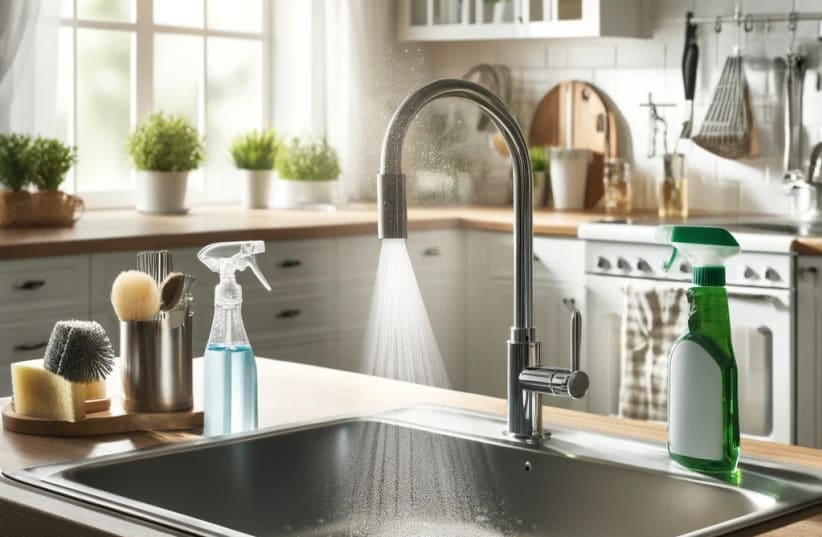An unpleasant odor emanating from your kitchen sink can be really off-putting and a sign that something needs attention. Here are the top culprits behind a smelly sink and how to tackle them:
Food Debris Buildup: Food particles trapped in your drain and pipes decompose over time, creating a foul odor. Regularly scraping food scraps into the trash and running hot water after using the sink can help prevent this buildup.
Grease Gone Rogue: Grease and cooking oils can solidify in your pipes, leading to clogs and unpleasant odors. Avoid pouring grease down the drain and use a grease trap to capture excess grease before it enters the plumbing system.
Forgotten in the Back Corner: Don't underestimate the power of a neglected sponge or dishcloth. These harbor bacteria and moisture, contributing to a smelly situation. Regularly clean and disinfect your sponges and dishcloths, or replace them frequently.
P-Trap Problems: The P-trap is the curved pipe located under your sink. It traps water, preventing sewer gasses from escaping into your kitchen. A dry P-trap can't perform its job, allowing those unpleasant sewer smells to waft up. Ensure your P-trap always holds water.
The Scum of the Sink: Soap scum and mineral deposits can accumulate around your sink drain and faucet, creating a breeding ground for bacteria and contributing to a musty odor. Regularly clean your sink with a disinfectant solution and wipe down your faucet and soap dishes to prevent this buildup.By addressing these common culprits, you can effectively combat unpleasant kitchen sink odors and keep your kitchen smelling fresh. Remember, a clean sink is a happy (and odor-free!) sink!

